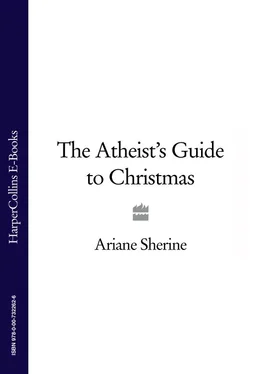Furthermore, science explains how things are. There is a nonsensical variant of the argument from ignorance referred to as the ‘God of the Gaps’. Very simply, where there is a hole in knowledge, insert God as the explanatory force. It’s nonsensical because historically, it was gaps all the way down. What science does very well is fill them in. To those gappists, I say ‘just because you don’t understand something, doesn’t mean I can’t’.
So, there are two robust reasons why scientists are less likely to be religious. But a much more interesting question is why any scientists are religious. Opponents sometimes screech that scientists have to have faith in science itself. This is true in a sense, but at least the robustness of the scientific method is such that a belief that the system works is based on countless data points which show it to be reliable: where once there was ignorance, science has inserted knowledge. Having faith requires an absence or ignorance of scientific evidence, a belief that is not supported by a logical progression. That’s why it’s called faith.
One might be tempted to suggest that scientists who believe are not very good scientists. Empirically this is simply not true, and I’m not talking about the preachers of that creationist fig-leaf they call Intelligent Design. No, there are plenty of good scientists who are religious, who have faith, who see the laws of nature, evolution, gravity, the whole damned universe as a manifestation of a non-interventionalist divine force that now acts like an absentee landlord: he sets up the rules of the cosmos and then clears off for ever. These people are technically Deists.
I don’t really see the point of this stance, but I accept that the cultural trappings of religion can be hard to shake. It may be one of my own bountiful shortcomings, but I have not stumbled across a convincing argument for this apparent internal conflict that doesn’t rely on a form of compartmentalisation of one’s rational and irrational minds.
And that’s fine. Everyone, even the most hardline rationalist, behaves in absurdly irrational ways. It’s the nature of humankind. I couldn’t believe in God any less: it makes no sense to me, and more importantly, my trust in science’s extraordinary explanatory abilities renders the need for divine answers superfluous. All things are potentially explicable without recourse to the supernatural. But that doesn’t mean I exist in a purely rational way. I’ve spent the last twenty-eight years supporting a football team who in that time have won a grand total of two trophies, both before I was seven. All because of the random cosmic happenstance of having emerged into the world in a hospital lift in the small market town of Ipswich. And even so, I will be a ‘tractor boy’ till my cardiac myocytes twitch their last. Is that rational? No. It’s not even very much fun much of the time, Goddammit.
While some consider it to be a weakness, the true strength of science is that it is always and willingly subject to being wrong. What scientific truth is right today may yet prove to be incorrect, or need to be modified in incremental steps towards a better, truer truth. If the supernatural turned out to be real, with God and angels and demons and unicorns and behemoths and whatever else, then it would instantly stop being super, and start being just natural. At that point, scientists would want to know what the hell was going on.
I like to fantasise that God does exist, and what He and I might talk about. In the extremely unlikely event that He did appear before me, it would indeed be a revelation. Who knows? I might even indulge in a bit of glossolalia. But once I’d reassembled my lower jaw, stopped gibbering, composed myself, and apologised to my devout Catholic gran for giving her such a hard time all these years, the realisation would be that although much of what we assume to be true is not, the revelation would simply open up a new, mouth-breathingly exciting branch of science. If He did make everything, quarks and all, then surely he’d be pretty excited to let us mortals make some new discoveries:
ME: Sorry about all that ardent non-believing I’ve been doing. By giving me choice, you didn’t really give me much choice.
GOD: Don’t sweat it. Any questions? I’m in a bit of a rush, I’ve got an urgent dice game to play with Einstein.
ME: Right. Did Maradona handle the ball in the 1986 World Cup Finals against England?
GOD: ‘Hand of God’, my divine arse. Nothing to do with me, mate.
ME: I forgive you. Listen, loads of questions to ask you, like, ‘What have you been up to for the last 13 billion years?’ and ‘What the hell is the point of Belgium?’ But I’m just going to stick to the facts: What are you made of?
GOD: Well…[answers in full] *
ME: Riiiight. Wow. That explains why in 10,000 years of history we haven’t been able to categorically verify one single instance of your existence.
GOD: Yeah, sorry about that.
ME: We’re gonna need some new technology and a seriously colossal grant to start researching this.
GOD: Anything else?
ME: One last thing: would you mind just clearing up the ‘Thou shalt not kill’ commandment? There seems to be a bit of confusion about it here on Earth.
GOD: [slightly embarrassed mumbling, exit stage left]
One can but dream. What scientists are very good at is asking questions. The scientific method provides a framework that allows us to ask those questions, rather than accept assertions. Take the example of the great and never-ending shouting match between those who understand evolution and those who are unencumbered by the gifts of fact or reason: creationists. A literal interpretation of the Biblical account of creation fails at every possible rational or scientific question one might put it. It is an assertion of truth based on nothing other than a fiction.
A thousand years ago, it wouldn’t have been all that easy to demonstrate how creationism is wrong. It existed largely in a knowledge vacuum, devoid of any evidence to the contrary, or any understandable evidence at all. The age of the Earth was unknown, the fact of evolution was unobserved, and the idea of a high-throughput automated fluorescent DNA sequencing machine was a matter for the dunking stool. For almost every question one could ask, the answer would be ‘we don’t know’. For many years Biblical creation was the only explanation. How were they to know that snakes have almost none of the physical attributes required to talk?
But by the first half of the nineteenth century, well before Charles Darwin graced us with evolution by natural selection, plenty of evidence had accrued that indicated that creationism could not be right. A whole steaming heap of wrong. And then in 1859 Darwin published On the Origin of Species . In it he outlined one big idea that not only fitted the observed evidence about the age of the Earth and the process of evolution, but it made predictions about what we would find next, many of which turned out to be very right. It’s not so much that creationism is wrong (which it most certainly is), but that evolution by natural selection is so much righter. So right in fact that it is now the only sensible way of understanding the origin of species on Earth. With varying degrees of wrongness other ideas and theories have come and, via the bypass of experiment and the slip road of failure, gone. It now seems unlikely that any theory will come along that could wholesale replace natural selection. But should that happen, scientists would be committed to investigating it fully. Currently, and for the foreseeable future, evolution by natural selection is categorically, emphatically and by far the best explanation for understanding the breathtaking diversity of life on Earth.
Читать дальше












